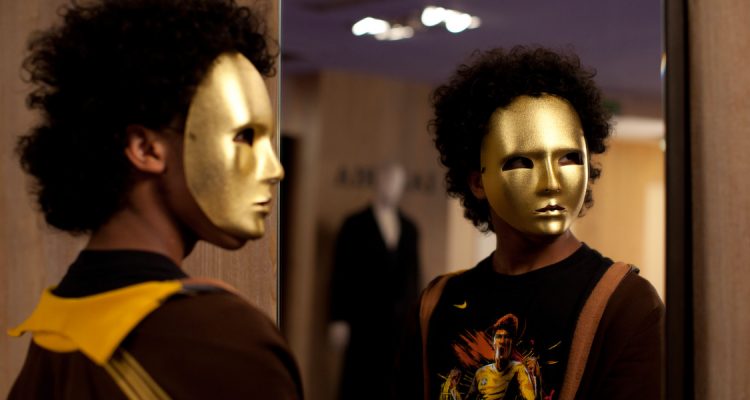The latest film from Bertrand Bonello, an enfant terrible of the last couple of decades of French cinema, has become mildly notorious in cinephile circles. Despite Bonello’s last few movies bowing at Cannes, both that festival and Venice reportedly rejected “Nocturama,” leaving the film to instead screen at TIFF and San Sebastian, which could be seen as a demotion for a European auteur of his status.
Was it because of the film’s quality? Or was it because “Nocturama” shows a group of young Parisians carefully plot and execute a series of terrorist attacks on the French capital less than a year after the devastating real-life ISIS attacks last November that killed 130 people at the Bataclan Theatre and elsewhere? After seeing the film at the BFI London Film Festival today, I can only imagine it was the latter reason, because even if the film isn’t entirely to my taste, it’s a provocative and powerfully made piece of work.
The films opens with Yacine (Hamza Meziani), an early twentysomething of vague Middle Eastern extraction on the Paris Metro. He’s eventually joined and assisted around the city by a multi-ethnic group of kids, including David (Finnegan Oldfield), his girlfriend Sarah (Laure Valentinelli), Yacine’s sister Sabrina (Manal Issa), André (Martin Petit-Guyot), Mika (Jamil McCraven) and Samir (Ilia Le Doré).
Their plan, eventually revealed in flashback to have been put together by the slightly older Greg (Vincent Rottiers, who played the villain in Jacques Audiard’s “Dheepan”), is assembled meticulously and near flawlessly executed, seemingly targeting government and financial institutions. The gang hole up in an empty department store overnight in the hope of slipping away quietly when the chaos has died down, whiling away the hours until they can escape in a playground of capitalist decadence.

In the early stages of the film, I was completely on board. Aside from a couple of moments (there’s a very odd slow-motion shot of a character dropping a phone in a bin that runs counter with the feel of the rest of the film up to that point), “Nocturama” is the most controlled and meticulous work we’ve seen from Bonello. “Nocturama” plays like a stripped down procedural, vaguely reminiscent of (but quite distinct from) the likes of Gus Van Sant’s “Elephant,” and the gradual drip-feed of storytelling is gripping.
And it’s substantial as well. Bonello is commenting on both the tactics and M.O. of terrorist groups (the way that Greg plies the younger kids with vodka, for instance) and an increasing millennial dissatisfaction and disgust with the world that they’ve inherited. Call it May ’68 for the Bernie Sanders generation (with the treatment of the Greek economy by the EU getting a call out by name).
The second half, however, can’t quite sustain the excellence of the first, as the gang moves into the empty department store. It sees a return to a certain kind of outré opulence that Bonello’s recent work like “Saint Laurent” and “House Of Tolerance” has displayed, a sort of “Home Alone 2: Lost In New York” wish fulfillment kicking in, with the would-be terrorists racing go karts and raiding the food counter.
The chance to slow down and spend some time with the ensemble is welcome after they’re mostly on a mission in the early part of the film, but beyond Daniel, who’s fleshed out a little more, albeit in a slightly inscrutable way, the rest prove to be archetypes —the young one, the girlfriend, the wild card, etc.
 This section also exposes a certain nihilism, or at least finger-wagging, with respect to Bonello’s approach to the kids. Temporarily imprisoned in the department store, they become drawn to the capitalist goods that surround them, developing into a microcosm of the bourgeois life that they seemed to have been fighting against.
This section also exposes a certain nihilism, or at least finger-wagging, with respect to Bonello’s approach to the kids. Temporarily imprisoned in the department store, they become drawn to the capitalist goods that surround them, developing into a microcosm of the bourgeois life that they seemed to have been fighting against.
While I applaud Bonello’s restraint in not just setting the second half in a room with the word ‘Materialism’ displayed in neon, the critique onscreen is not that far off, and between that, scenes early on of the kids playing video games and a montage of explosions set to Willow Smith’s “Whip My Hair,” the result ends up feeling less like a smart examination of a generation and their hopelessness, and more a condescending kids-these-days-with-their-Snapchat-and-rap-music rant.
It’s frustrating, if only because of how good the first half is —indeed, because of how good the filmmaking is throughout, with some haunting images coming even in the film’s more problematic section. It’s certainly a big step forward for Bonello, providing plenty of material for thought, but that it only ends up being a good movie is kind of a bummer given how close to greatness it comes. [B]
Click here for our complete coverage of the 2016 BFI London Film Festival

